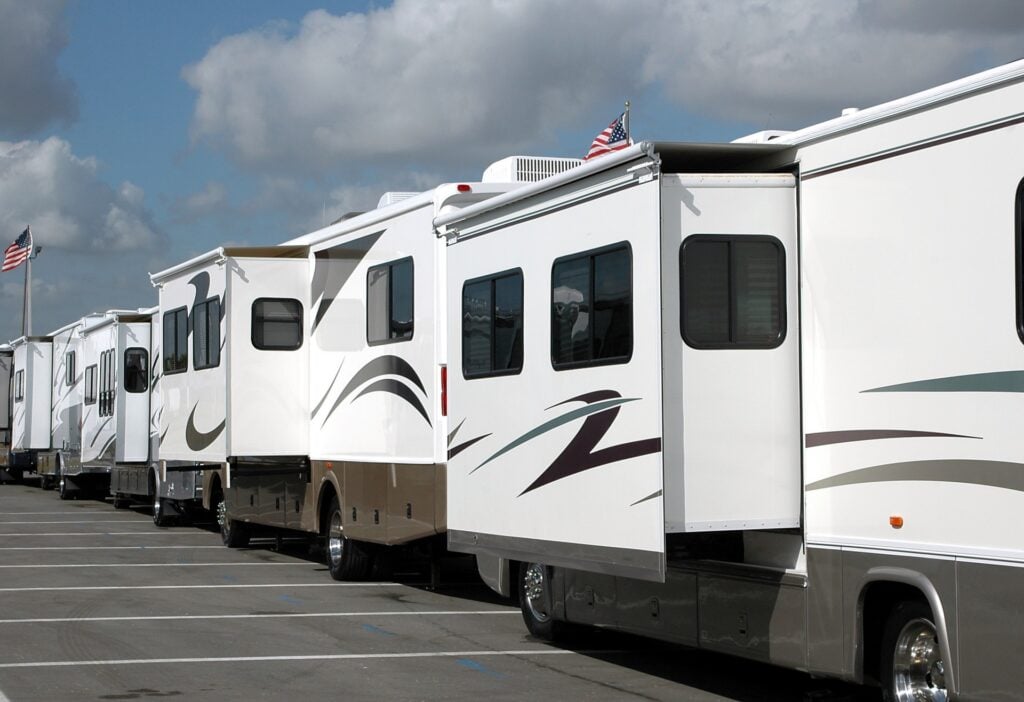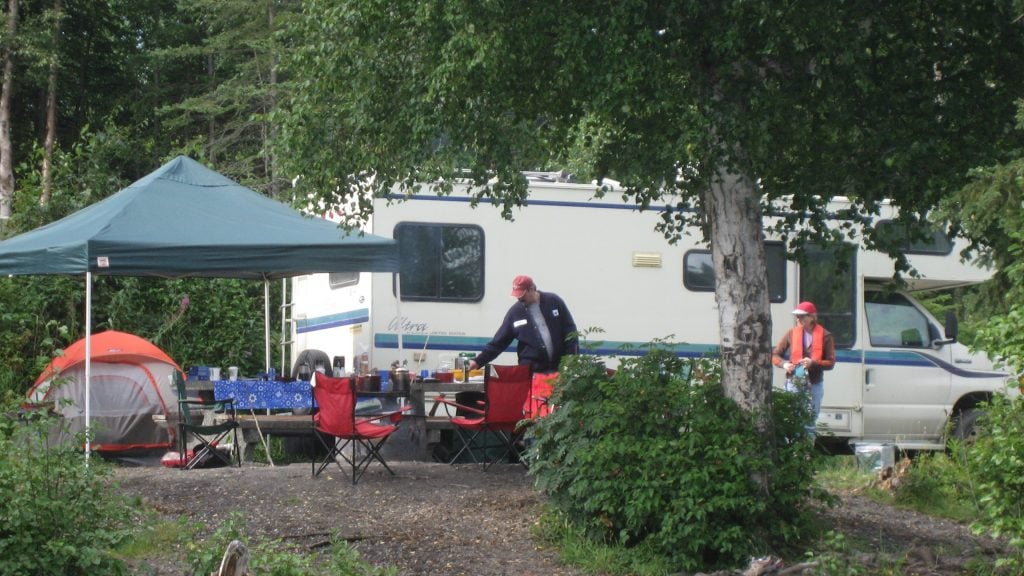
RV insurance is essential. Photo by Need Pix
RV Insurance: Important Things You Need To Consider
No one likes to think about insurance. But whether you are heading out for a vacation or live in an RV full-time, insurance is something that you need to consider.
Many times people are tempted to just get the cheapest or quickest coverage just to get that task over with so they can move on to more fun travel plans, but having the wrong insurance or being underinsured for what you are wanting to do can lead to trouble if you end up needing to call on your insurance policy.
Recently I had the opportunity to ask my insurance agent some questions about RV insurance, and in particular what might be needed for full-time RVers. Although our particular insurance company does not cover full-time RVers, he offered some sage advice and things to consider when looking for an insurance policy.
Q: What is your number one piece of advice to give to someone looking for RV insurance?
A: Be honest and truthful about your plans, your needs, and what needs to be covered. An insurance agent can’t read your mind and has no idea if you plan to travel with that priceless piece of art, an expensive bike, or are going out of country.
Q: Is an RV considered a vehicle or a residence? Are contents covered or just the vehicle?
A: For many policies, the RV is covered off of the RV insurance and any personal property inside the RV would be extended from your home insurance policy. In the case you have no home or renters policy and the RV is your only home, you would want to talk with your insurance company to make sure they add personal property to your policy and that it would be covered if a loss occurred in your RV.
Q: What are some of the biggest mistakes you see people make in terms of RV/motorhome/camper insurance coverage?
A: Not checking with your insurance carrier to see how your policy works in the event of a claim. Not all insurers who cover RVs, camping trailers, or motorhomes are designed to cover them if they are your primary residence.

RV insurance may cover expenses if you need to be towed. Photo via Youtube
It is important to check with your carrier to find out if they provide personal liability coverage and coverage for your contents. Additional living expenses (money to live somewhere else while your trailer/motorhome is being repaired) is another important consideration if this is your primary home.
Another important question to ask is, “What kind of towing/road service coverage does my policy provide?” A tow for an RV can become expensive quickly. A robust towing coverage can be a huge plus.
Q: What insurance considerations should you be thinking of if you are looking to sell your home and become a full-time RVer? How would a typical “homeowner’s liability” work for something like a dog bite or a fire or theft?
A: Personal liability is an important (and usually relatively inexpensive) coverage that would want to continue carrying. This shouldn’t be confused with the automobile liability (bodily injury, property damage, uninsured, and underinsured motorist coverage) which you are required by law to carry in order to operate your vehicle on public roads.
Ideally, your liability limits would be greater than or equal to your net worth. Personal liability traditionally will cover defense costs and damages for dog bites. Though some policies exclude certain breeds and have a reduced limit for dog bite claims. This is another good reason to talk with your company to confirm what your policy will cover.
Q: How is full-time nomadic RV insurance affected as you move between states, or other countries (travel to Canada, for example)?
A: Again, it comes back to your policy. RV insurance is regulated differently in each state and it will be up to your policy contract.
Q: What additional coverage should people consider that would not fall under a typical policy?
A: Most home insurance policies settle losses on a replacement cost basis. This means that if there is a loss, the insurance company will replace the item at today’s cost and not depreciate the item based on its age. Most auto insurance companies settle on an actual cash value basis. Actual cash value is not as desirable as the insurance company will pay what your “used” item was worth.
Some companies will settle trailers/motorhomes on a replacement cost basis. This coverage may only be available for the first several model years but it is worth asking about as it can make a significant difference at claim time.
For expensive items, such as jewelry, art, expensive bikes, ATVs, etc, you should disclose these items to your agent so they can determine if you might need additional insurance riders for these expensive items.
Q: What discounts might be available?
A: Depending on the type of policy, your credit rating and driving record are still major factors that determine the rate. In addition, discounts may be available for things like garaging location or multiple policy bundling (ie home, life, auto).

Comprehensive coverage will cover RV theft. Photo via Wikipedia
Keith Parker, CC BY-SA 2.0, via Wikimedia Commons
Q: How is liability handled for things like injuries resulting from someone tripping on the picnic table at your RV spot (that isn’t yours, but may or may not be part of a formal campground)? Bear damage?
A: This is another example of why you want to carry personal liability coverage. People can sue you for many reasons…even for things you don’t feel you are responsible for.
The job of your personal liability insurance is to defend you against lawsuits, frivolous or legitimate. Bear damage losses would be covered as long as you carry comprehensive coverage on your auto policy.
Q: If there is a total loss or someone steals your RV and it is your primary residence, what would be covered?
A: Again, this comes back to the type of policy you carry. As long as you carry comprehensive coverage, the theft of your RV would be covered. As long as you elected to include personal property on your policy, contents would be covered too.
Q: What other recommendations would you give to people when they are looking to find a policy for either a full-time RVer or recreational RVer?
A: Another “auto” related coverage is personal injury protection (PIP) or med pay (depending on your state). If you carry a high deductible on your health insurance plan, having increased medical payments coverage on your auto policy can be valuable. The medical payments coverage will only pay if there is an auto-related injury but is an option worth exploring.
Check with your insurance agent to ask about their coverage options for your RVing needs, or visit RVerInsurance.com for a RV insurance plans specifically for full-time RVers.

When I went to specifically get insurance on my Teardrop Trailer which I had built from scratch, my insurance agent told me that I did not need any special insurance, and that it would be automatically covered during towing under the existing liability insurance policies which were already on my towing vehicles,
But it is only covered when hooked to your tow vehicle. Rv insurance would protect your trailer while stored and also while camping unhooked from your tow vehicle. Legally most states don’t require insurance for trailers since car policies do offer minimal liability coverages for towed trailers.
Sure would be nice to find a policy that would pay me what I gave for my RV and what I have put into it, tires, genny, new ac, etc instead of some BS blue book value crapola. I DON’T intend to wreck but I seem to be a moronic driver magnet and then what I have put into my RV won’t just be tossed out with the trash in the event of it being considered totaled.
It would also be awesome if you could turn your insurance “off and on” instead of paying out the nose while it is only sitting in your driveway until the next trip.
You might try Progressive RV insurance. My “rv” is a 1973 Airstream Argosy travel trailer that the wife and I have lovingly restored. I have an agreed value policy from Progressive that has covered one mishap that would have totaled my trailer on a normal policy. After the accident I got three quotes for repair, printed out every ad for comparable units I could find, and had all the documentation of everything we have done to her before the adjuster had even called. When the adjuster came I had every piece laid out for him. Even told the adjuster that we planned on fixing her ourselves. Check was in our mailbox 7 days after the accident.
I agree….. great deal for insurance companies!
GoodSam has policies where you can “turn off” certain coverages while your RV is in storage. If I remember correctly the period must be for a month or longer. They don’t want to be doing this for a week or two at a time.
Great article and lots of good tips for full timers (such as myself)
Thank You!
Your article said it listed 10 insurance companies that offered full time insurance policies but you only listed 4. Why?
Nice timing! We just got our Jeep broken into and had about $1000 worth of possessions stolen. We paid for the window (cost less than our $500 vehicle damage deductible) but the personal property was covered under our full timers insurance. We carry $20,000 and you get coverage for 10% of that away from the RV, so $2000. We were totally covered save a paltry $50 deductible. We provided a list of what was stolen, some pictures we happened to have and no questions asked. Check went out 24 hours after we made the claim. You won’t get that with standard RV insurance but we’ve got personal liability and personal possession coverage just like a home owner would have. Thankfully we did. Another couple we’ve heard about had the same thing happen and if it wasn’t for some separate business insurance, they wouldn’t have been covered. As the questions, pay the little bit extra.
Just a side note related to your experience. We have personal property coverage though progressive as well. When our RV was “stolen from” as it was not technically “broken into,” they stole the title, a passport, 2 smart TVs, and a portable generator from the rack on the back(outside – that was locked to the rack) they denied our claim entirely. This was due to the fact that the were no signs of break in as we admitted having accidently leaving the doors unlocked. ALWAYS LOCK THE DOORS 😔
Buy your insurance from Good Sam! Covers everything at a reasonable price. I have my truck and travel trailer insured through them. Very happy with their service and comprehensive coverage.
Which Ins. carrier do you have through Good sam ???
Good Sam has a limit on the age of your RV…15 years! They will not cover my Class C 1999.
It is so important to discuss with your insurance agent how you intend to use the RV and of any modifications to it. Your insurance agent can’t ready your mind, but is there to help you have a discussion and advise you of the right coverages to include in your policy.
If you take your rv to Mexico you must purchase Mexican insurance. If your RV is over 20 years old comprehensive isn’t available. I was told prior to the border crossing there were b-list companies that would cover comprehensive. At the border there were not. I knew this and took a chance. Cost me $1600 out of pocket for repairs. Mexican roads are narrow and RVs are wide. My vehicle was sideswiped and the driver didn’t stop.